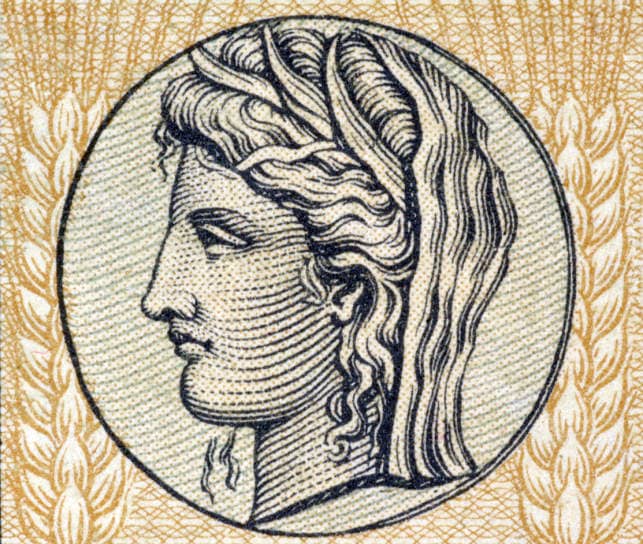 In Ancient Greece, people worshiped various gods and goddesses because they served different purposes. There seems to be a god or goddess that represents almost every facet of life.
In Ancient Greece, people worshiped various gods and goddesses because they served different purposes. There seems to be a god or goddess that represents almost every facet of life.
Demeter, one of the major Olympic goddesses, represented the harvest and all things that came with it such as healthy crops and all that the earth provided for the people. It stands to reason, then, that the people would always think of her during the major growing seasons.
Birth of Demeter
Demeter’s parents are Cronus and Rhea, two Titans who have sired five other gods and goddesses, including Zeus. She was their second child. In one story, Cronus devoured her with the rest of her siblings.
Since they were thought to be immortal, they continued to grow inside of him. After some time had passed, he was given an herbal concoction, which caused him to throw up. As a result, he threw up all of his children. Demeter was the second to last child who came out.
Goddess of the Harvest
Her greatest area of legend is that she is responsible for giving mankind the knowledge to grow crops. Not only that, but she has the sole responsibility of making sure that the crops grow. The Ancient Greeks believed that without her, they wouldn’t experience a bountiful harvest.
All the Greek city-states at the time depended on agriculture to provide sustenance and nourishment for the people. Yes, there were fishing communities and people who hunted animals for food. However, it is the crops that provided the majority of the diet. Since Demeter essentially controlled Earth’s fertility, she was looked at as an important goddess.
Mother of Persephone
Demeter had a daughter by Zeus named Persephone, who was a virgin. When Hades saw her, he was captivated. He abducted her and brought her to the underworld to be his wife. This saddened Demeter, and Zeus tried to come to her aid and rescue her from Hades.
However, Zeus was unsuccessful because Persephone had eaten when she was with Hades. Hades and Zeus compromised and it was determined that Persephone would be with Hades for four months out of year. Demeter would always grieve during this time and no crops would grow while she awaited Persephone’s return.
Demeter and the Four Seasons
Demeter is associated with controlling the seasons because of her control over the harvest. When Persephone is in the underworld, Demeter is too distraught to allow crops to grow. This is the winter. Once Persephone returns, it becomes “spring” because the crops are allowed to grow. During the summer, crops thrive. In the autumn, the harvest takes place. According to the Ancient Greeks, this was all Demeter’s responsibility.
As a result of her importance over the growing season, Demeter was worshipped throughout Ancient Greece. Agriculture was important to every city-state. Sparta, for example, was known for its skilled soldiers. However, they also possessed some of the most fertile lands in Greece. Wherever crops were important, Demeter was part of the culture.

